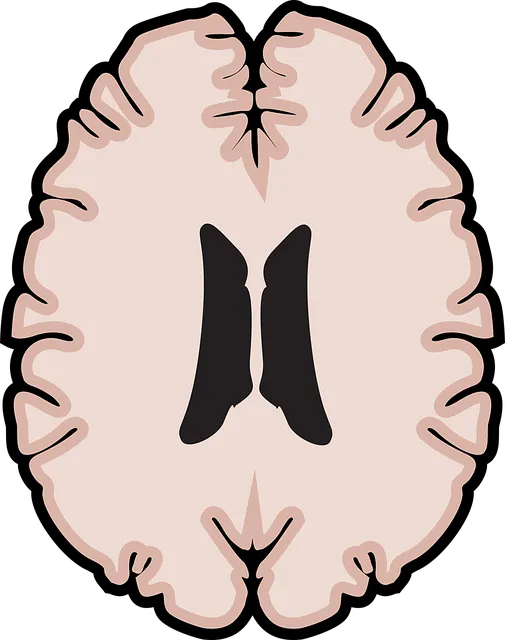Risk management is crucial for delivering quality care at Kaiser Permanente (KP) mental health centers in Castle Rock, as evidenced by positive reviews. KP integrates clinical excellence with employee support services to enhance provider resilience and patient outcomes. By identifying and mitigating risks, including stress and burnout, through tailored workshops, screenings, peer networks, and self-care programs, KP creates safer environments. Their dynamic risk management plans incorporate empathy building, cultural sensitivity, best practices, research, and feedback, fostering strong therapeutic alliances and addressing diverse client needs. This continuous improvement approach ensures KP mental health centers in Castle Rock remain at the forefront of safe, effective care.
“In the realm of mental health care, effective risk management is paramount to ensuring patient safety and provider well-being. This article explores a strategic approach to risk mitigation, drawing insights from renowned organizations like Kaiser Permanente. Through a case study focusing on their successful model, we delve into identifying risks at local facilities, such as Castle Rock Mental Health Center, and developing robust risk management plans.
Learn practical strategies for implementation, review, and continuous improvement, essential for professionals navigating the complex landscape of mental health care.”
- Understanding Risk Management in Mental Health Care
- The Kaiser Permanente Model: A Case Study
- Identifying Risks at a Castle Rock Mental Health Center
- Developing a Comprehensive Risk Management Plan
- Implementation, Review, and Continuous Improvement Strategies
Understanding Risk Management in Mental Health Care

Risk management is an integral part of delivering quality care at Kaiser Permanente mental health centers, such as those in Castle Rock. It involves identifying, assessing, and mitigating potential risks that may arise during therapy sessions or interactions with clients. By implementing robust risk management strategies, mental health professionals can ensure a safer and more supportive environment for their patients. This proactive approach not only protects individuals but also enhances the reputation of organizations like Kaiser Permanente, as evidenced by positive Castle Rock mental health center reviews.
Effective risk management in mental health care includes various components, such as Crisis Intervention Guidance, tailored Stress Management Workshops, and improved Communication Strategies. These initiatives are designed to prepare professionals for unexpected situations, promote resilience among clients, and foster open dialogue. By integrating these practices, mental health centers can better navigate challenges, ultimately contributing to the well-being of individuals seeking support.
The Kaiser Permanente Model: A Case Study

The Kaiser Permanente Model, as exemplified by their mental health center reviews in Castle Rock, serves as a compelling case study for comprehensive risk management planning. This healthcare organization prioritizes staff well-being through integrated approaches that blend clinical excellence with employee support services. By fostering a culture of Mental Health Awareness, Kaiser Permanente leverages Stress Management Workshops Organization to equip professionals with burnout prevention strategies tailored to the unique challenges of their field.
Their approach underscores the critical balance between patient care quality and provider resilience. Through regular mental health screenings, peer support networks, and evidence-based interventions, Kaiser Permanente ensures that healthcare providers maintain optimal well-being. This proactive strategy not only minimizes risks associated with burnout but also enhances patient outcomes by keeping mental health professionals at their best, thereby ensuring consistent, high-quality care in a dynamic healthcare setting.
Identifying Risks at a Castle Rock Mental Health Center

At a Kaiser Permanente mental health center like Castle Rock, identifying risks is a multifaceted process that goes beyond typical operational considerations. It involves understanding the unique challenges faced by both patients and staff in a dynamic environment. Risks can manifest as physical, emotional, or psychological stressors, exacerbated by factors like high patient load, complex cases, and personal vulnerabilities. For instance, long hours and high stress levels can contribute to burnout among mental health professionals, compromising their own emotional well-being and the quality of care they provide.
One effective strategy for mitigating these risks lies in Inner Strength Development programs that foster resilience and self-care practices. Confidence Boosting techniques and Emotional Well-being Promotion Techniques can be integrated into daily operations, helping both staff and patients navigate challenging situations. By prioritizing mental health within the workplace, a Kaiser Permanente mental health center like Castle Rock not only ensures the sustainability of its professionals but also enhances the therapeutic environment, leading to more positive outcomes for all involved in the care process.
Developing a Comprehensive Risk Management Plan

Developing a comprehensive risk management plan is an integral part of ensuring the safety and well-being of both mental health professionals and their clients. At Kaiser Permanente mental health centers, such as those in Castle Rock, this process involves a multi-faceted approach that goes beyond standard protocols. It encompasses tailored strategies like Empathy Building Strategies and Cultural Sensitivity in Mental Healthcare Practice, which are crucial for fostering strong therapeutic alliances and addressing diverse client needs.
By integrating these approaches into risk management planning, mental health professionals can effectively anticipate and mitigate potential risks. This proactive strategy not only aligns with the evolving Mental Health Policy Analysis and Advocacy landscape but also ensures a safe, inclusive, and supportive environment that maximizes positive outcomes for all clients.
Implementation, Review, and Continuous Improvement Strategies

Effective risk management planning for mental health professionals involves a dynamic approach centered on continuous improvement. After implementing initial strategies based on best practices and expert recommendations, regular reviews become paramount. The Kaiser Permanente mental health center reviews in Castle Rock highlight the importance of assessing the effectiveness of established protocols, identifying gaps, and adapting them to evolving challenges. This iterative process ensures that risk management remains relevant and robust.
Through review, professionals can incorporate emerging research on Stress Reduction Methods, Self-Awareness Exercises, and Crisis Intervention Guidance into their practices. They can also leverage feedback from peers, patients, and families to refine procedures and foster a safer environment. By embracing a culture of continuous improvement, mental health centers like Kaiser Permanente in Castle Rock can maintain high standards, enhance patient outcomes, and better equip professionals to navigate complex situations.
Risk management planning is an indispensable tool for mental health professionals to ensure patient safety and well-being. As evidenced by the Kaiser Permanente model and the case study at the Castle Rock Mental Health Center, a comprehensive approach can significantly mitigate risks and improve outcomes. By identifying potential hazards, developing tailored strategies, and implementing continuous improvement processes, mental health centers can create secure and supportive environments for their patients. The techniques outlined in this article provide a solid framework for professionals to navigate and manage risks effectively, ultimately enhancing the quality of care in mental health settings. Moreover, learning from real-world examples, such as Kaiser Permanente mental health center reviews and Castle Rock’s experiences, offers valuable insights for centers aiming to strengthen their risk management practices.






